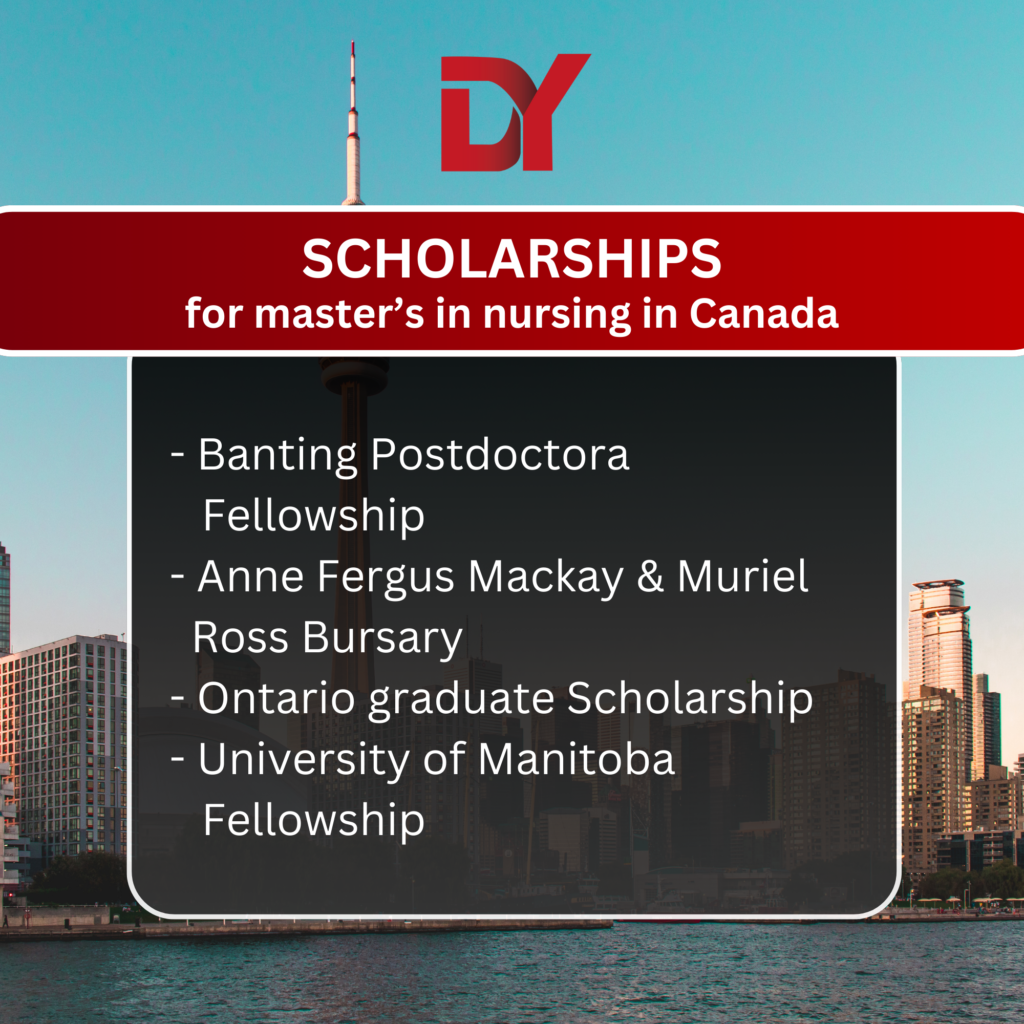A Master’s in nursing in Canada can help students to broaden the knowledge and improve the abilities as a medical practitioner. The Master of Science nursing universities in Canada seek to create cutting- edge approaches to provide care for the public. Nowadays, many overseas students are interested in pursuing master’s in nursing in Canada due to excess demand for nurses.
In this blog, know about the master’s in nursing in Canada including pre-requisites, application process, universities/colleges & cost of the courses for international students.
Why study master’s in nursing in Canada?
Let’s start by discussing the advantages to pursue MSC in Nursing in Canada for international students:
1. MSc in nursing in Canada receives special attention on research-based knowledge. It encourages learning and exploration beyond the course material for the students.
2. In Canada, reach of masters in nursing is beyond imagination. Top Canadian Universities that offer master’s degree in nursing employ their graduate in the government and private industries.
3. The courses provide a variety of specializations such as nursing administration, practical nursing and more.
4. According to research, the registered nurse workforce is increasing quickly in Canada. Approximately 104,980 nurses are registered in Ontario, whereas over 73,340 nurses are registered in Quebec.
Thus, there is a corresponding rise in demand for nursing master’s programs in Canada.
Best Universities for master’s in nursing in Canada:
Confused which universities/colleges choose to study nursing in Canada? Check out the list of universities to pursue master’s in nursing in Canada:
|
Universities |
|
University of Toronto |
|
McMaster University |
|
University of Alberta |
|
McGill University |
|
University of British Columbia |
|
Queen’s University |
|
University of Calgary |
|
Trinity Western University |
|
University of Ottawa |
|
Thompson Rivers University |
|
Conestoga College |
|
University of Windsor |
|
Western University |
|
Langara College |
|
Brock University |
Courses for master in nursing in Canada:
Below is the list of courses offers for MSc in Nursing in Canada:
|
Universities |
Courses |
Yearly Estimated Fees |
|
University of Toronto |
Master of Nursing MSc in Clinical Nursing |
CAD 31,000 |
|
Mc Gill University |
Master of Science in Nursing
MASc in nurse Practitioner |
CAD 10,000 |
|
University of British Columbia |
MSc in Nursing
Nurse Practioner- Master of Nursing |
CAD 50,000 |
|
Manitoba University |
Course Based- Master of Nursing
Thesis Based- Master of Nursing.
|
CAD 12,000 |
Eligibility Criteria for master’s in Canada:
Students must know the eligibility criteria for admission to Master’s in science in nursing in Canada. Let’s examine each of them individually:
- Bachelor’s degree
- English test Score
- Visa & Passport
1. Bachelor’s degree:
Student must demonstrate graduate degree in nursing with at least an average of B+. A valid Registered Nurse (RN) license is another requirement that certain Canadian universities have for their students. A minimum of one to two years of nursing experience is also necessary before admission.
2. English Test Score:
All international applicants must demonstrate English proficiency exam to be admitted to universities. The following lists the IELTS score necessary for Canadian MSc nursing programs, along with additional relevant exam results:
- IELTS – 7.0-7.5
- PTE- 68
- TOEFL – 97-100
- CAEL- 70
The results may differ amongst universities. Before applying always check the official university websites.
3. Visa & Passport:
To enroll in any course at any Canadian university, international students must have a current passport and student visa. Remember to apply for visa at least three months before departure date.
Documents Required for master’s in nursing in Canada:
Canada’s nursing colleges need a series of documents for enrollment. The following is a list of some common document specifications:
- Educational Qualification Transcript
- Resume/CV
- Letter of Recommendation (LOR)
- Statement of Purpose (SOP)
- English Test score (IELTS, TOEFL or PTE)
- Work Experience
Admission Process for master’s in nursing:
The following is an overview for applying to several Master’s in nursing programs in Canada:
1. Choose the course student want to enroll and search for the university offer the specific course.
2. Check the eligibility criteria, documents required by visiting the official website of the university/colleges.
3. Submit the required documents online on the university website.
4. Pay the application fees after submitting the application form.
5. Go through online interview if required.
6. Student can reserve the spot at specific university as soon as they receive the offer letter after qualifying the interview.
7. Finally wait for the result from the university. Remember to check the mails daily for any update.
Also Read: IELTS Band Requirement to study in Canada
Cost of studying master’s in nursing in Canada:
In Canada, the cost of an master’s in nursing is determined by several factors. Tuition and living expenses make up the two main categories into which the total cost can be broadly classified.
Tuition Fees:
Depending on the programs and universities student select, pursuing a master’s degree in nursing in Canada can come with different costs. The average annual cost of an master’s in nursing program in Canada ranges from CAD 15,000 to CAD 30,000.
Living Expenses:
The cost of living in Canada varies according to student choices and way of life. International students should budget between CAD $15,000 and CAD 20,000 per month. It includes everything that you need, including lodging, food, transportation, stationery, and leisure activities.
Scholarships for master’s in nursing in Canada:
Here are a few well-known scholarships for master’s in nursing in Canada:

Students can choose from several scholarships if they want to receive financial assistance for master’s in nursing in Canada. Scholarships are a great way for overseas students to reduce the cost of their studies and stay in Canada.
|
Scholarships |
Description |
Amount |
|
Banting Postdoctoral Fellowship |
Students pursuing postgraduate degree with social science & health research. |
70,000 CAD/year |
|
Anne Fergus Mackay & Muriel Ross Bursary |
Merit students enroll for MSc in nursing courses at UBC. |
1,100 CAD |
|
Ontario graduate scholarship |
International students enroll for graduate courses fulltime or part-time. |
15,000 CAD / year |
|
University of Manitoba Fellowship |
Students registered for graduate courses. |
14,000 CAD/year |
Career After master’s in nursing in Canada:
The following list include some well- known jobs along with their typical salaries:
Students holding master’s degree are qualified for employment as nurses in renowned companies/organizations. However, the salary of individual demonstrates master’s degree in nursing is very high.
|
Jobs |
Estimated salary (per hour) |
|
Nurse |
50-60 CAD |
|
Resident Care worker |
40-50 CAD |
| Instructor Nursing |
55- 80 CAD` |
| Nursing Community |
40-45 CAD |
Finally, students who want to study in Canada, it’s time to enroll in desired university as students know about the advantages, best universities, fees, and admission process for master’s in nursing.
For more information, visit DY immigration office and get in contact with our expert counsellors.
FAQ
Q1. How long does an MSc in nursing take in Canada?
Ans: In Canada, master’s programs in nursing can last up to two years.
Q2. In Canada, how much does an MSc nursing student make?
Ans: In Canada, master’s degree holders in nursing typically earn between CAD 70,000 and CAD 150,000 annually.
Q3. What is the Canadian master’s in Nursing program’s IELTS requirement?
Ans: Universities in Canada have differing requirements regarding the IELTS score for MSc nursing. However, to get into the best universities, you need to earn at least 7.0 or 7.5.
Q4. Which Canadian institutions provide the top master’s programs in nursing?
Ans: The top Canadian universities for an master’s in nursing, aside from those already listed, are:
- University of Ottawa
- Calgary University
- University of McMaster


